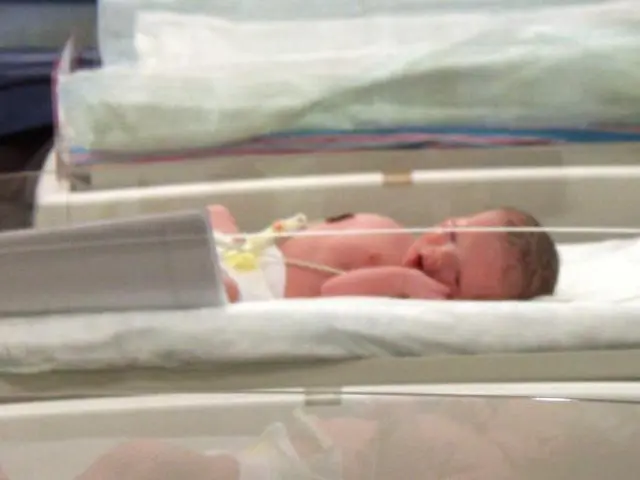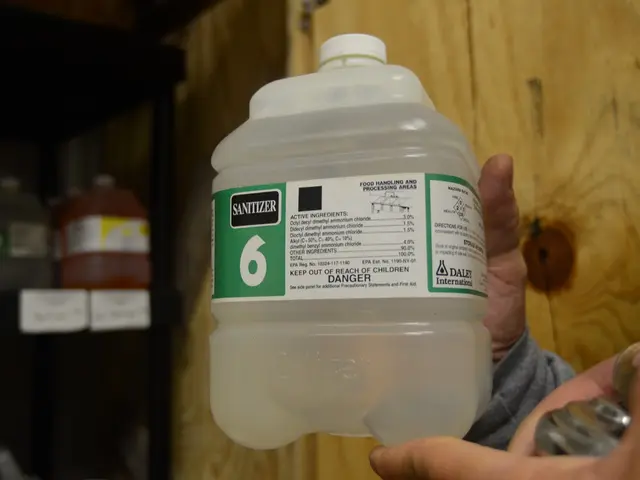Crack Inquiry Stagnant in Frankfurt: No Progress Reported
A countless crowd fills the streets, guided by an insatiable thirst for overpriced beer. The lively outdoor dining scene of Kaiserstraße is bustling, basking in the early summer heat. It's a dream location, nestled between the hustle and bustle of Frankfurt Central Station and towering skyscrapers. Yet, a mere stone's throw away, reality takes a darker turn.
The grim specter of addiction, a fixture in the neighborhood for three decades, still looms. People huddle in building entrances, their bodies marked by the struggle for their next fix, constantly seeking money for the next high. The drug of choice has evolved from heroin to crack, a highly addictive substance that strikes fast and demands constant replenishment. This transformation poses a fresh challenge for the city.
Frankfurt once boasted the "Frankfurt Way" as a solution to its drug problem. Introduced decades ago, when the city claimed the leading drug death rate in Germany, this concept emphasizes counseling, prevention, consumption rooms, and controlled drug trade. The city aimed to dismantle the drug hotspots through these means, and it seemed to work – at least in terms of drug-related deaths. Yet, the scene has grown, shifting to crack, while the Bahnhofsviertel emerged as a hotspot for restaurateurs, hoteliers, and real estate speculators.
The evolving situation has stirred conflicts that refuse to let up. A group of women smokes cigarettes outside a law firm in Niddastraße, voicing their discontent. The city plans to purchase a nearby building, transforming it into a crack-specialized help center. However, they claim no city official has spoken to them about the matter, despite the potential impact on their lives.
The once unified front supporting the "Frankfurt Way" now crumbles, as conflicting voices emerge. The state's minister president, a Christian Democrat, advocates for closing help facilities and driving the drug scene away with raids and arrests. In contrast, the city coalition argues that drug policy falls under municipal jurisdiction.
The debate over responsibilities intensifies, with no clear resolution in sight. The cities and municipalities surrounding Frankfurt are unlikely to voluntarily establish aid centers, leading the Greens in the state parliament to push for a law mandating it. However, so far, the proposal remains unsuccessful, with neither state politics nor the municipalities of the Rhine-Main region showing immediate concern.
"It's infuriating," a local social worker laments, "You finally get someone who wants to overcome their addiction, and then you can't find any appointments with a psychiatrist or therapist." While the debate about responsibilities rages on, helpers tirelessly work to address the immediate needs of those trapped in addiction.
As one steps off the train, the scene shifts dramatically from the bustling city to the idyllic countryside, dotted with small towns and larger cities. Yet, the issue of dealing with counseling centers and support facilities remains: if addicts are not from there, where should they go? For the helpers on the ground, this debate is a secondary concern, as they focus on providing help to those who need it in the here and now.
Bülent, a social worker in the Bahnhofsviertel, expresses doubt about the feasibility of the proposed solution by the Greens and the social democratic mayor. He believes it's unrealistic to separate Frankfurt addicts from those coming from distant regions. The city's communication with the residents also leaves much to be desired, with suggestions often dismissed as platitudes.
Yet, there are glimmers of hope. Police Vice-President Christian Vögele notes a decrease in heavy drug users, from 350 at the beginning of 2022 to 200 in the spring of 2023. This could be attributed to the fact that, post-pandemic, addicts have been directed to existing support facilities more efficiently. The restaurateurs also report a relaxation of the situation.
Despite the ongoing challenges and debates, solidarity shines through in the Bahnhofsviertel. The early morning rush at the central station café counters sees well-dressed commuters offering food and drink to the struggling. This sense of community carries over to the residents, who view addiction as an illness rather than a moral failing.
However, the measures currently in place are insufficient. Structural problems persist, with the lack of social housing and difficult access to doctors and therapists creating obstacles for effective treatment. Bülent clings to hope that the new help center will address these issues, particularly by providing the needed medical and psychiatric care.
The city's strategy is grounded in the lessons learned from the 1990s, when the drug scene overtook Taunusanlage and Zeil. Raids and attempts to dismantle the drug scene failed to bring change. This experience shapes Frankfurt's current strategy, which also includes the transformation of Kaiserstraße into a pedestrian zone to make the district more attractive. Yet, the drug scene remains elusive, lurking just out of sight.
Some travelers seek out this seedy atmosphere, enticed by the tabloid nickname "Zombieland." The transformation of the area into an attraction complicates matters further, with the city contending with unwelcome attention it can ill afford. Ultimately, it's about helping individuals like the hungry man standing outside the bakery stand in the morning, and those like Bülent, struggling against an entrenched system. It's about the commuters who pass through the district daily, each one a potential ally in the ongoing struggle to make the Bahnhofsviertel a safer, more compassionate place.
- The ongoing debate in politics revolves around policy and legislation related to mental health, health-and-wellness, and the drug problem in the city, specifically in the Bahnhofsviertel neighborhood.
- The evolving nature of the drug crisis, from heroin to crack, has necessitated a fresh approach in science and counseling, aiming to address the addiction problem more effectively.
- The general news in Frankfurt continues to be dominated by stories of crime and justice, as the drug scene persists, rapidly shifting and elusive, despite ongoing efforts to combat it.
- In the midst of the bustling Kaiserstraße, where science, health-and-wellness, and mental health are distant concerns, the stark reality of crime and justice lurks in the nearby streets, where addiction battles rage on.








